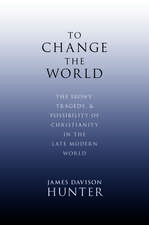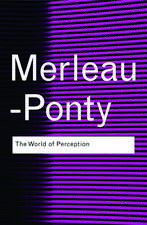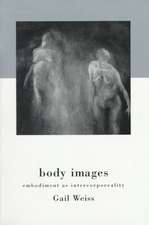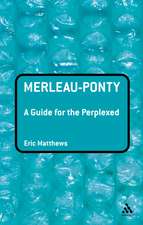Cultural Analysis: The Work of Peter L. Berger, Mary Douglas, Michel Foucault, and Jürgen Habermas: Routledge Library Editions: Michel Foucault
Autor Robert Wuthnow, James Davison Hunter, Albert J. Bergesen, Edith Kurzweilen Limba Engleză Paperback – 21 feb 2012
This study of their work clarifies their contributions to the analysis of culture and shows the converging assumptions that the authors believe are laying the foundation for a new approach to the study of culture. The focus is specifically on culture, a concept that remains subject to ambiguities of treatment, and concentrates on questions concerning the definition and content of culture, its construction, its relations with social conditions, and the manner in which it may be changing. The books demonstrates how these writers have made strides towards defining culture as an objective element of social interaction which can be subjected to critical investigation.
| Toate formatele și edițiile | Preț | Express |
|---|---|---|
| Paperback (1) | 488.07 lei 6-8 săpt. | |
| Taylor & Francis – 21 feb 2012 | 488.07 lei 6-8 săpt. | |
| Hardback (1) | 1062.98 lei 6-8 săpt. | |
| Taylor & Francis – 7 dec 2009 | 1062.98 lei 6-8 săpt. |
Preț: 488.07 lei
Nou
Puncte Express: 732
Preț estimativ în valută:
93.39€ • 97.77$ • 77.28£
93.39€ • 97.77$ • 77.28£
Carte tipărită la comandă
Livrare economică 05-19 aprilie
Preluare comenzi: 021 569.72.76
Specificații
ISBN-13: 9780415521598
ISBN-10: 0415521599
Pagini: 288
Dimensiuni: 156 x 234 x 20 mm
Greutate: 0.43 kg
Ediția:1
Editura: Taylor & Francis
Colecția Routledge
Seria Routledge Library Editions: Michel Foucault
Locul publicării:Oxford, United Kingdom
ISBN-10: 0415521599
Pagini: 288
Dimensiuni: 156 x 234 x 20 mm
Greutate: 0.43 kg
Ediția:1
Editura: Taylor & Francis
Colecția Routledge
Seria Routledge Library Editions: Michel Foucault
Locul publicării:Oxford, United Kingdom
Cuprins
Part 1: Introduction 1. Limiting Assumptions 2. Four Perspectives on Culture 3. Toward Clarification and Culture Part 2: The Phenomenology of Peter L. Berger 4. Intellectual Assumptions 5. Berger’s Perspective on Culture 6. Culture and Social Change 7. Conclusions Part 3: The Cultural Anthropology of Mary Douglas 8. Intellectual Assumptions 9. Douglas’ Perspective on Culture 10. Culture and Social Change 11. Conclusions Part 4: The Neo-Structuralism of Michel Foucault Douglas 12. Intellectual Assumptions 13. Foucault’s Perspective on Culture 14. Culture and Social Change 15. Conclusions Part 5: The Critical Theory of Jürgen Habermas 16. Intellectual Assumptions 17. Habermas’s Perspective on Culture 18. Culture and Social Change 19. Conclusions Part 6: An Emerging Framework 20. The Problem of Subjectivity 21. Relating Culture and Social Structure 22. The Issue of Positivism 23. Cultural Analysis
Notă biografică
Robert Wuthnow, James Davison Hunter, Albert J. Bergesen, Edith Kurzweil
Descriere
First published in 1984, Cultural Analysis is a systematic examination of the theories of culture contained in the writings of four contemporary social theorists: Peter L. Berger, Mary Douglas, Michel Foucault, and Jürgen Habermas.
This study of their work clarifies their contributions to the analysis of culture and shows the converging assumptions that the authors believe are laying the foundation for a new approach to the study of culture. The focus is specifically on culture, a concept that remains subject to ambiguities of treatment, and concentrates on questions concerning the definition and content of culture, its construction, its relations with social conditions, and the manner in which it may be changing. The books demonstrates how these writers have made strides towards defining culture as an objective element of social interaction which can be subjected to critical investigation.
This study of their work clarifies their contributions to the analysis of culture and shows the converging assumptions that the authors believe are laying the foundation for a new approach to the study of culture. The focus is specifically on culture, a concept that remains subject to ambiguities of treatment, and concentrates on questions concerning the definition and content of culture, its construction, its relations with social conditions, and the manner in which it may be changing. The books demonstrates how these writers have made strides towards defining culture as an objective element of social interaction which can be subjected to critical investigation.


































